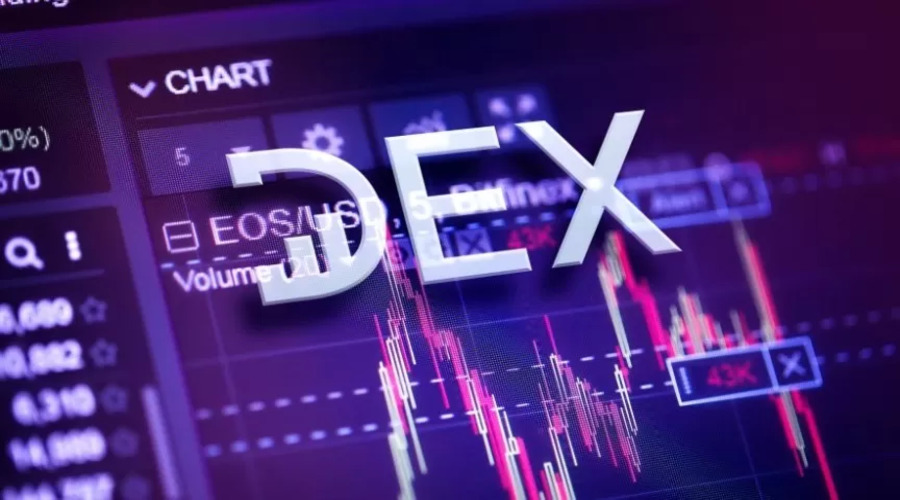Decentralized exchanges (DEXs) are becoming increasingly popular due to their inherent advantages such as trustlessness, censorship resistance, and self-custody. However, one of the main challenges facing DEXs is liquidity, which refers to the availability of assets for trading. Liquidity providers (LPs) play a crucial role in addressing this challenge, but their participation is incentivized differently than in centralized exchanges (CEXs). In this article, we explore the role of liquidity providers in decentralized exchanges, their incentives, and the risks associated with their participation.
What are Liquidity Providers?
Liquidity providers are individuals or entities that contribute assets to a pool on decentralized exchanges in exchange for incentives. LPs enable traders to exchange one asset for another by providing the necessary liquidity. LPs can contribute a single asset or a pair of assets, which creates a trading pair on the DEX. In return, LPs earn a share of the trading fees generated by the DEX.
Incentives for Liquidity Providers in Decentralized Exchanges
Incentives for liquidity providers in decentralized exchanges are different than in CEXs. In CEXs, LPs are incentivized by earning a spread between the buy and sell prices of assets. However, in DEXs, LPs earn a share of the trading fees generated by the DEX. This means that the higher the trading volume on the DEX, the higher the incentives for LPs.
In addition, LPs are incentivized to provide liquidity for assets with low liquidity because they can earn higher trading fees due to lower competition. Moreover, LPs can earn additional incentives such as liquidity mining rewards, governance tokens, and other incentives provided by the DEX protocol.
Risks for Liquidity Providers
Although LPs can earn attractive incentives, there are risks associated with their participation in DEXs. The main risks are impermanent loss, smart contract risk, and market risk.
Impermanent loss occurs when the price of the two assets in a trading pair diverges, which causes LPs to lose money compared to holding the assets. This risk is inherent in providing liquidity, and LPs should be aware of it.
Smart contract risk refers to the risk of bugs or vulnerabilities in the smart contracts governing the DEX. If a smart contract is compromised, LPs can lose their contributed assets.
Market risk refers to the risk of fluctuations in the prices of assets due to market volatility, hacks, or other events that can affect the DEX.
Decentralized Exchange vs Centralized Exchange Liquidity
CEXs rely on market makers to provide liquidity. Market makers are entities that continuously offer buy and sell orders for a specific asset in a market. They earn a spread between the buy and sell price, which incentivizes them to provide liquidity.
In contrast, decentralized exchanges use liquidity providers to provide liquidity. LPs deposit assets into a liquidity pool, and traders can use those assets to trade against other assets in the pool. LPs earn a portion of the trading fees, which are shared among all the LPs in the pool.
CEXs can offer higher liquidity than DEXs because market makers can provide a more efficient market for price discovery. However, CEXs are centralized, which makes them vulnerable to hacks, thefts, and regulatory actions. DEXs offer a more secure and trustless environment but suffer from lower liquidity due to the lack of market makers.
The Impact of Incentives on LP Participation
LPs are incentivized to provide liquidity in DEXs due to the possibility of earning incentives such as trading fees, liquidity mining rewards, and governance tokens. The incentives offered by DEXs vary, and LPs must evaluate the risks and rewards before participating.
Incentives can affect LP behavior in several ways. For example, LPs may be more likely to provide liquidity for assets with low liquidity because they can earn higher trading fees due to lower competition. LPs may also be more likely to participate in liquidity mining programs that offer high rewards.
However, incentives can also create adverse effects such as liquidity migration. Liquidity migration occurs when LPs move their assets to another DEX that offers higher incentives. This can cause a liquidity crunch on the original DEX, which can affect trading volumes and price stability.
The Risks Associated with LP Participation
LPs face several risks when providing liquidity in DEXs. One of the most significant risks is impermanent loss, which occurs when the price of the two assets in a trading pair diverges. LPs can lose money compared to holding the assets because the value of the assets changes while they are deposited in the liquidity pool.
Smart contract risk is another risk that LPs must consider. Smart contract risk refers to the possibility of bugs or vulnerabilities in the smart contracts governing the DEX. If a smart contract is compromised, LPs can lose their deposited assets.
Market risk is also a significant risk for LPs. Market risk refers to the possibility of fluctuations in the prices of assets due to market volatility, hacks, or other events that can affect the DEX.
Conclusion
In summary, LPs play a critical role in providing liquidity to DEXs, which is necessary for efficient trading. LPs are incentivized differently than in CEXs, which can create attractive opportunities for earning incentives. However, LPs should be aware of the risks associated with their participation in DEXs, such as impermanent loss, smart contract risk, and market risk. Therefore, LPs should carefully evaluate the risks and rewards before participating in DEXs. Additionally, DEXs should consider the impact of incentives on LP behavior and the risks associated with LP participation when designing their protocols.
